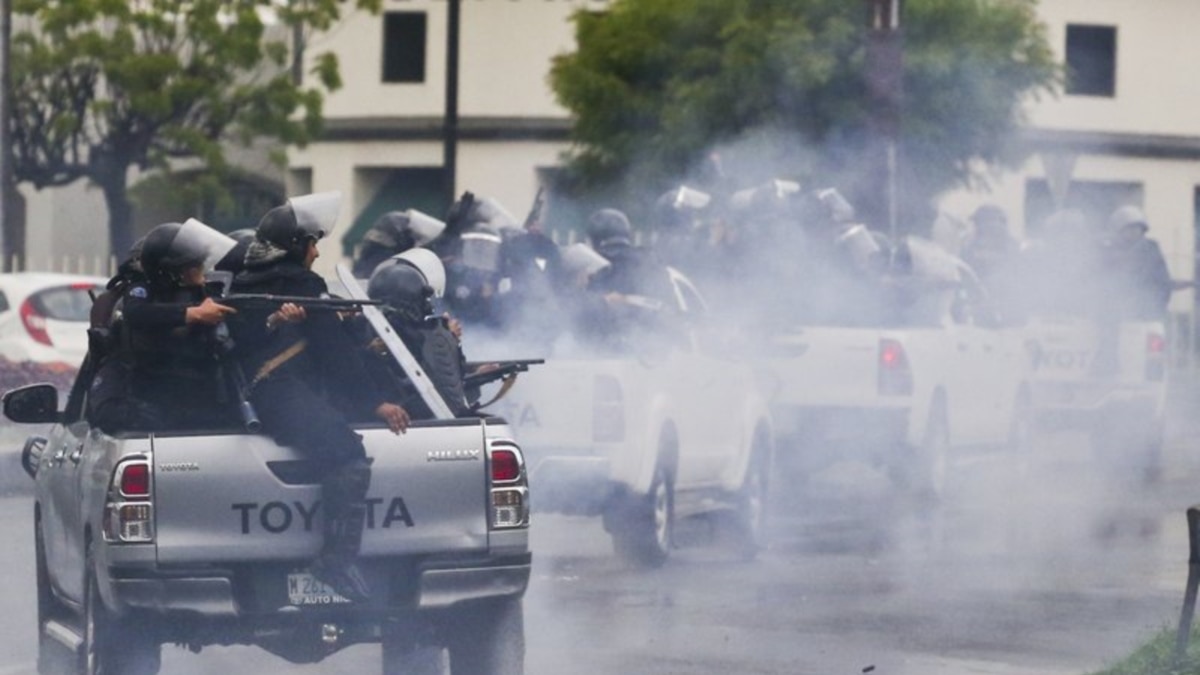AND
he new order
. The stench of death and the crunching of bones that capitalism left in response to the protests from 1945 to 1968 had not dissipated. In France, in Mexico, in Argentina. The macabre winds of the empire were still blowing strong in Vietnam while the media monopolies distorted reality at the newsroom of eight-column macabre journalism. There was a climate of imperial armament stubbornness against a breath of rebellion that sought to progress – and proliferate – as revolutionary actions. Years later, a certain flash of sensitivity at the UN General Conference (Nairobi, 1976) detected that there had been communication problems
in contemporary society and devised an International Commission for the Study of Communication Problems under the direction of Sean MacBride (Paris, France, 1/26/1904-Dublin, Ireland, 1/15/1988), by then Award Nobel Peace Prize and Lenin Peace Prize. Seems like yesterday.
That commission included Eli Abel (United States); Hubert Beuve-Méry (France); Elbe Ma Ekonzo (Zaire); Gabriel Garcia Marquez (Colombia); Sergei Losev (USSR); Mochtar Lubis (Indonesia); Mustapha Masmoudi (Tunisia); Michio Nagai (Japan); Fred Isaac Akporuaro Omu (Nigeria); Bogdan Osolnik (Yugoslavia); Gamal El Oteifi (Egypt); Johannes Pieter Pronk (Holland); Juan Somavia (Chile); Boobli George Verghese (India), and Betty Zimmerman (Canada). There was also Marshall McLuhan. A salad of visions and practices whose main working method was the consultative approach.
Such consultative character had the brake of the not binding
of origin and, therefore, nothing diagnosed became a solution program. But the landscape thrown up by such an initiative, official and international, left a panorama full of urgent problems that clearly revealed one of the most pernicious calamities of monopoly capitalist development on the mercantile manipulation of information and communication that had been enshrined as human rights. fundamental. immense contradiction. And, of course, the ideological and commercial manipulation of consciences. Uncontrolled individualism and mercantilism.
Despite its limitations, the report managed to draft, with diplomatic precautions, a set of pioneering observations and recommendations that, even marked by their time and style, constitute up to the present qualitative and quantitative guidelines that are significantly valid. That is one of its transcendental values that have served –and serve– as an inspiration to many struggles for the democratization of communication. In this world of multiple voices, it is still urgent to new order of information and communication
to which it is very important to add to culture, in its broadest sense, when the dispute over meaning becomes more acute in its imperial phase. The report was approved and published in 1980.
Between 1945 (end of World War II) and 1990, the monopoly concentration of the media was consolidated as an ideological war weapon that not only updated historical scoundrels for the manipulation of consciences, but also strengthened a program of profitable social control based on subjecting peoples to a system of media lies and an idyllic paradise instilled with the syringes
of bourgeois entertainment. It is no longer enough to repress with blows and torture, it occurred to them to sow fear and hatred of themselves and against themselves in the peoples so that they would admit their rebellious or revolutionary vocations as a mistake. They inoculated the idea that the system is always right that it must collaborate for the success of the masters and that sooner or later it will spill benefits, here on earth as it is in heaven. They imposed the idea that this is the best we can do and that this will be the best inheritance for our offspring. Earthly paradise within reach by being faithful to the media and to the ideology of the mediatized ruling class. The report saw the substance of this problem and pronounced itself, capitulating on its contents, central aspects from the technological to the pedagogical, aesthetic, ethical and philosophical aspects. That’s why they went out of their way to freeze the report and make it disappear under Ronald Reagan’s orders.
Reagan led the attacks as a representative of the establishmnet media for a counteroffensive to the report. His own show business base encouraged him to win business sympathy in the propaganda industry and carve out spectacle hegemony over state affairs. It was an excessive reaction due to the airs of the media businessmen that, swollen with ego, did nothing but make visible and hateful the economic and ideological reality of an era that knew how to wrap itself in tinsel of show business the war plans of the US military industry. The report achieved direct and indirect goals, it did not lose hierarchy and it did gain the status of an essential trench for debating, internally and externally, the future of information and communication under capitalism… and beyond.
The oligopolies have not disappeared and are multiplying in their own interbourgeois war broth disguised as democratic opening
. They are also operations centers for conventional and algorithmic espionage that, at the same time that they control us, trade information and communication big data of our social and brain cells, our innermost thoughts and our organizations. We need a second MacBride report. The multiple voices
They are not just a democratist compendium of statements… they are original, peasant and worker identities that also have the right to emancipated and emancipatory information and communication.
* Director of the Institute for Culture and Communication and the Sean MacBride Centre. National University of Lanús
** First, of five installments, of the joint project between La Jornada and the Institute of Culture and Communication and the Sean MacBride Center of the National University of Lanús, Argentina.








